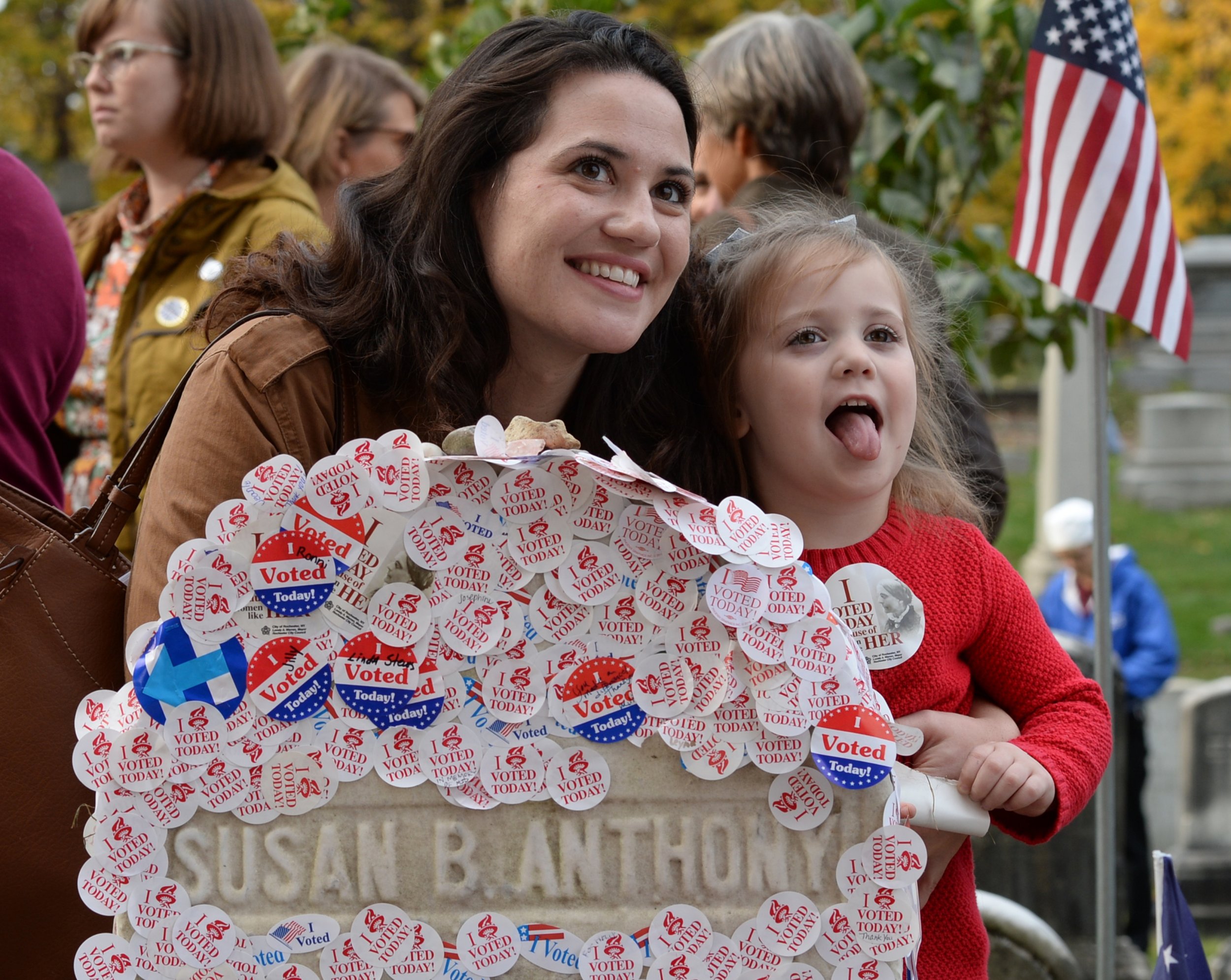
Newsweek published this story under the headline "Out of Their League?" on September 8, 1980. In honor of the 97th anniversary of the 19th Amendment, which granted women the right to vote, Newsweek is republishing the story.
For 60 years, the League of Women Voters has quietly educated American citizens about election issues, candidates and voting procedures. But now the venerable organization finds itself pushed and pulled by rival campaign staffs as it earnestly plans for the televised presidential debates that just might be the deciding factor in a close White House race. Some campaign veterans think the women are simply out of their league. "We've been painted as imperious broads for having the nerve to put this together alone in the first place," one league member complains. Still, league leaders acknowledge that their reputation as an independent, nonpartisan organization is on the line.
The league began sponsoring televised presidential debates almost by default. The Federal Communications Act holds that the broadcast media must give equal air time to all presidential contenders—including many fringe candidates; the networks can cover a debate confined to major-party candidates only if it is a bona fide news event sponsored by an independent, non- partisan organization. (Congress granted a one-time exemption for the Kennedy-Nixon debates of 1960.) The league stepped into the breach in 1976, inviting Gerald Ford to square off against Jimmy Carter. Even then negotiations were testy. The league had to mediate disputes over when, where and how the debates would be conducted—including Ford's request to stand behind the presidential seal (denied). "We are not unfamiliar with these people," says one league negotiator. "They're playing hardball—and we were not unprepared."
The league was born in political controversy—founded in 1920 as an outgrowth of the women's suffrage movement. While not endorsing political candidates, it has consistently taken stands on touchy issues—lobbying most recently for ratification of the Equal Rights Amendment and safe disposal of nuclear wastes. Though officially nonpartisan, its national leaders are hardly political neophytes. President Ruth Hinerfeld, for example, served on the White House Committee for Trade Negotiations under both Ford and Carter. The league's current national membership of 120,000 (including 5,000 men) is down from a 1972 high of 150,000, but the presidential debates have clearly enhanced its profile.
Reputation: Hinerfeld freely admits that the league has not been "anointed by anyone" as sole sponsor of the debates, but she contends that her group has "earned the right, historically, to be looked upon as a natural sponsor." It has also raised $ 400,000 so far—largely from corporate donations—to help defray what it expects to be a $ 700,000 bill for hosting the debates. The league's twin concerns now are to keep its debates alive and emerge from the current controversy with its reputation for independence intact. League leaders say they are willing to negotiate times, places and other details of the debates, but will not change their criteria for John Anderson's participation—at least for the first debate. "I can't blame [the Carter forces] for trying to do what they are trying to do. They're playing for big stakes," says Hinerfeld. "We just have to forge a compromise that won't compromise us." Should the Carter and Reagan camps supplant the league and arrange debates more to their own liking, "it will be the candidates who are the losers," warns league debate-adviser Jim Karayn, "because the debates will have lost their credibility."
Uncommon Knowledge
Newsweek is committed to challenging conventional wisdom and finding connections in the search for common ground.
Newsweek is committed to challenging conventional wisdom and finding connections in the search for common ground.
About the writer
To read how Newsweek uses AI as a newsroom tool, Click here.








